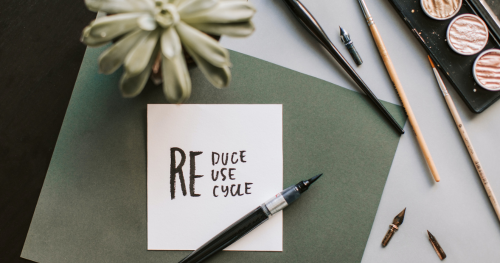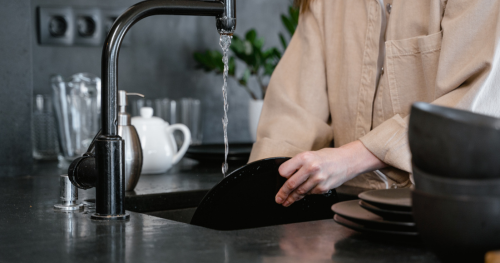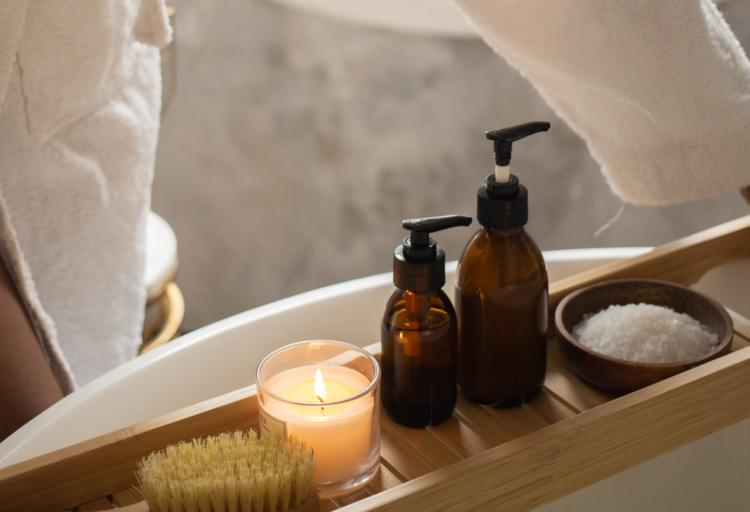The message behind self-care can be blurred by the aesthetics that have been built surrounding this practice. Self-care is a personal practice that should bring meaning to your life. There are various types of self-care, some of which can feel pleasant and others not. It can be pampering, but not all aspects of self-care fall under indulgence.
The goal is to make needed changes to improve your life and well-being. These changes, such as taking a guilt-free break, can bring immediate satisfaction. On the other hand, other self-care changes, such as exercising, may not offer immediate results but still has long-term benefits.
When you set on your self-care journey, it is important to remind yourself of the value it brings to your life. Envision what you want for yourself and how lifestyle choices and external pressures affect you negatively. Assessing these things can help you understand the areas where you need to prioritize personal care. It is also a learning process that can require starting over or re-strategizing. That said, some areas are overshadowed by others. They are not less important and should also be prioritized. Without further ado, here are the types of self-care you often ignore.
Why Practice Self-Care?
Self-care is a way of life and a significant part of your self-improvement journey. It is not a trend that disappears after some time because it will always have relevance as long you are incorporating what you value. Adopting self-care means choosing to live better for yourself now and going forward.
There is no pressure when it comes to practicing self-care. Personal care gives you control over your life, and you can make changes that better equip you to deal with life challenges. By implementing different forms of self-care into your life, you embrace mindfulness. The beautiful thing about this practice is that there are no rule books. While there are guides to help you navigate and plan self-care effectively, you choose what works best for you.
4 Types of Self Care You Don’t Often Practice
Common categories of self-care that most people are familiar with are emotional, physical, and psychological. However, self-care expands beyond those areas.
Self-care can be restricted to specific categories when you don’t take a broad view of your needs. Although you don’t need to tackle everything simultaneously or equally, there are other areas you should also be aware of.
1| Professional Self-Care

Sometimes, you have no idea how heavily you’re pushing yourself until you experience sudden burnout. Not only can it contribute to poor performance, but worse, it can impact your health.
Whether you are an entrepreneur or work with a corporation, you need to incorporate self-care practices that solve work-life stress. Without respecting your physical and mental limitations, you risk committing to a life that is not healthy long-term.
Professional Types of Self-Care
○ Don’t bring work home.
There is no time to reset when you do this. It is simply a continuation of the day, and you’re bringing additional stressors to your place of rest. You end up overwhelmed, which can also impact your relationships at home. If you work from home, respect the time you set to end work activities and stick to your schedule.
○ Avoid overloading your schedule.
Say no to additional work projects you don’t have time for and ask someone for help when needed.
○ Add breaks in your workday.
Just like you shouldn’t take work home, you shouldn’t also work during your break. Take breaks to clear your mind and come back refreshed to continue working.
○ Use your paid time off (PTO).
Learn about the policies surrounding your paid time off. Some companies have a cap, so don’t be afraid to take these days off when you need them or just because.
2| Financial Self-Care

Aside from being one of the areas of self-care, it is also a life skill many don’t take seriously until later in life. You can start financial self-care as early as you want.
Accumulating debts and not understanding your finances is another source of stress that can affect you mentally. Most of the time, people don’t know where to start regarding finances. Although some schools offer financial literacy courses, it is not statewide in the US. Therefore, unless you become a finance major in school, you’re unaware of how to handle most financial situations. Don’t worry; there is a lot you can do to improve your relationship with money.
Financial Self-Care Tips
○ Add value to your savings by investing.
There is a misconception that you need a lot of money to start investing, but you can start anywhere. Remember that your money loses value over time from being stored in your savings because of inflation.
○ Make a strict budget.
Following the trends can be costly long-term and damage your finances. Be frugal and learn to live below or within your means to avoid unnecessary spending. Track your monthly spending and create budgets for each necessity.
○ Learn to thrift.
Many things are bought new that don’t have long-term value. You may use them for a few months and need a replacement. Start saving money by thrifting some items in your home or closet.
○ Have an emergency fund.
Life is filled with unforeseen circumstances. While everyone hopes things go smoothly, there are bumps on the road sometimes. Prepare for those obstacles by setting money aside monthly for expenses that can happen unexpectedly.
○ Use your talent to bring in another source of income.
For instance, if you love cooking and developing recipes at home, create an e-book to sell. If you often travel for work and enjoy visiting different areas, make guides or paid courses for safer travel.
3| Environmental Self-Care

This type of self-care allows you to take care of your dwelling and the environment. The simple concept involves feeding your surroundings, so you and others around you can live better.
Caring for your home and the world around you does not require much. Simple changes can still have substantial impacts.
Environmental Types of Self-Care
○ Start a garden.
○ Carry reusable bags on your grocery runs.
○ Add things that make you happy in your space (i.e., plants, paintings)
○ Re-organize different areas of your home.
4| Practical Self-Care

Although the different types of self-care you come across are specific, routine life activities also count as part of your self-care. Things like clearing your countertops or taking care of that laundry pile can change how you feel.
Practical self-care highlights the beautiful idea of the small things making a huge difference. The chaos may be because you’re not addressing the mundane activities that require your attention.
Practical Types of Self-Care
○ Household cleaning.
Things like washing dishes or dusting are part of maintaining order in your home, but it also creates a healthier space for you. If you struggle with this, consider checklists for structure or cleaning hacks to break the routine.
○ Volunteer in an area you love.
Asides from providing your help, you also get to network and get a dose of social self-care as a bonus.
○ Create morning/night rituals.
Sometimes, it can feel like you’re living on autopilot when you go through the same day monotonously. Creating these rituals brings excitement to your routine.
○ Consider digital decluttering.
Do you have 1000+ emails staring you down every time you check your inbox? Start slowly deleting things you don’t need. Digital decluttering also includes files on your laptop, outdated information you no longer need, your social media feed, and much more.
Final Thoughts
There are different types of self-care that you will come across. Some hold more importance to you than others; therefore, get priority. This makes perfect sense to avoid adding things to your life that are not needed. However, everyone can benefit from the different areas of self-care mentioned above.
With self-care, starting slowly and genuinely understanding your needs is vital. There are more chances of embracing this life-changing practice when you find meaning in it. Start slow, start simple, and most importantly, don’t forget to check in with yourself to ensure you’re okay in different areas of self-care.
.





Leave a Reply